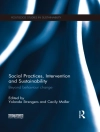The world is in the midst of a social media paradigm. Once viewed as trivial and peripheral, social media platforms like Twitter, Facebook and We Chat have become an important part of the information and communication infrastructure of society. They are bound up with business and politics as well as everyday life, work, and personal relationships.
This international Handbook addresses the most significant research themes, methodological approaches and debates in the study of social media. It contains substantial chapters written especially for this book by leading scholars from a range of disciplinary perspectives, covering everything from computational social science to sexual self-expression.
Part 1: Histories And Pre-Histories
Part 2: Approaches And Methods
Part 3: Platforms, Technologies And Business Models
Part 4: Cultures And Practices
Part 5: Social And Economic Domains
Tabla de materias
Introduction – Jean Burgess, Alice Marwick and Thomas Poell
Part One: Histories and Pre-Histories
1. Pushing Back: Social Media as an Evolutionary Phenomenon – John Hartley
2. Early Social Computing: The Rise and Fall of the BBS Scene (1977 – 1995) – Aaron Delwiche
3. Alternative Histories of Social Media in Japan and China – Mark Mc Lelland, Haiqing Yu, and Gerard Goggin
4. From Hypertext to Hype and Back Again: Exploring the Roots of Social Media in Early Web Culture – Michael Stevenson
Part Two: Approaches and Methods
5. Digital Methods for Cross-platform Analysis – Richard Rogers
6. A Computational Analysis of Social Media Scholarship – Jeremy Foote, Aaron Shaw and Benjamin Mako Hill
7. Digital Discourse: Locating Language in New/Social Media – Crispin Thurlow
8. Ontology – Nick Couldry and Jannis Kallinikos
9. Analysing Social Media Images – Simon Faulkner, Farida Vis and Francesco D’Orazio
10. Ethnography – Jolynna Sinanan and Tom Mc Donald
11. Web History and Social Media – Niels Brügger
12. The Incomplete Political Economy of Social Media – Siva Vaidhyanathan
Part Three: Platforms, Technologies and Business Models
13. The Affordances of Social Media Platforms – Taina Bucher and Anne Helmond
14. Governance of and by Platforms – Tarleton Gillespie
15. Social Media App Economies – Rowan Wilken
16. Labor and Social Media: the Exploitation and Emancipation of (Almost) Everyone Online – Jack Linchuan Qiu
17. Silicon Valley and the Social Media Industry – Alice Marwick
18. Alternative Social Media: From Critique to Code – Robert W. Gehl
Part Four: Cultures and Practices
19. Personal Connection and Relational Maintenance in Social Media Use – Kelly Quinn & Zizi Papacharissi
20. Television Viewing and Fan Practice in an Era of Multiple Screens – Rhiannon Bury
21. Trolling, and Other Problematic Social Media Practices – Gabriele de Seta
22. Memes – Kate Miltner
23. Self-Representation in Social Media – Jill Walker Rettberg
24. Sexual Expression in Social Media – Kath Albury
25. Privacy and Surveillance – Daniel Trottier
Part Five: Social and Economic Domains
26. Social Media Marketing – Michael Serazio and Brooke Erin Duffy
27. Social Media and Journalism – Alfred Hermida
28. Social Media and the Cultural and Creative Industries – Terry Flew
29. Politics 2.0: Social Media Campaigning – Jessica Baldwin-Philippi
30. Social Media and New Protest Movements – Thomas Poell & José van Dijck
31. Lively Data, Social Fitness and Biovalue: the Intersections of Health and Fitness Self-Tracking and Social Media – Deborah Lupton
32. Social Media Platforms and Education – José van Dijck and Thomas Poell
33. Scholarly Communication in Social Media – Katrin Weller and Isabella Peters
Sobre el autor
Thomas Poell is Assistant Professor of New Media & Digital Culture and Program Director of the Research Master Media Studies at the University of Amsterdam. He has published widely on social media and popular protest, as well as on the role of these media in the development of new forms of journalism. His next book, co-authored with José van Dijck and Martijn de Waal, will be titled The Platform Society. Public values in a connective world.












